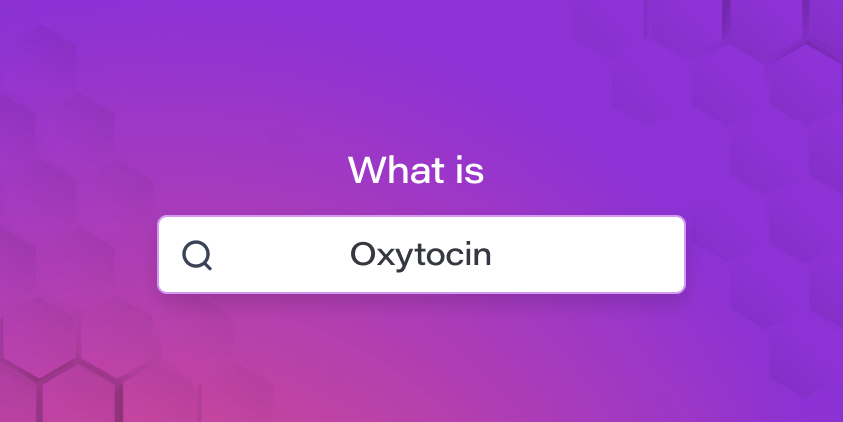Oxytocin: Understanding Its Functions and Importance in Human Health
This article was written in collaboration with Christine T. and ChatGPT, our little helper developed by OpenAI.

Definition
Oxytocin is a hormone and neuropeptide that plays a significant role in various physiological processes, such as labor induction, lactation, social bonding, and emotional regulation. It is produced in the hypothalamus and secreted by the posterior pituitary gland. Oxytocin has been referred to as the “love hormone” or “cuddle hormone” due to its involvement in promoting trust, empathy, and social bonding.
Related Terms
- Hormone
- Neuropeptide
- Social bonding
- Labor induction
- Lactation
Synonyms, Definitions, and Examples
| Synonym | Definition | Example |
|---|---|---|
| Love hormone | A term used to describe oxytocin due to its role in fostering trust, empathy, and social bonding. | Oxytocin, also known as the love hormone, can be released during hugging, which can help strengthen social connections. |
| Cuddle hormone | Another term used to describe oxytocin because of its involvement in promoting physical touch and emotional closeness. | When a mother cuddles her baby, the release of the cuddle hormone, oxytocin, helps to create a strong bond between them. |
Functions and Roles of Oxytocin
Oxytocin plays a variety of roles in human health and well-being, including:
- Inducing labor contractions during childbirth
- Stimulating milk production and release during breastfeeding
- Promoting social bonding and trust between individuals
- Regulating emotional responses, such as reducing stress and anxiety
Measuring Oxytocin Levels
Oxytocin levels can be measured using various techniques and tools, such as:
- Blood tests to measure oxytocin concentrations in plasma
- Salivary assays to assess oxytocin levels in saliva
- Urine tests to determine oxytocin levels in urine
Factors Affecting Oxytocin Levels
Several factors can influence oxytocin levels in the body, including:
- Genetic variations
- Stress and anxiety
- Social interactions
- Physical touch and affection
- Age and gender
- Medical conditions or treatments
Oxytocin Administration and Therapeutic Uses
Oxytocin can be administered in various forms for therapeutic purposes, such as:
- Intravenous infusion or injection to induce or augment labor
- Nasal spray to facilitate breastfeeding or promote social bonding
- Oral or sublingual tablets for research purposes
Legal and Ethical Considerations
When administering oxytocin or conducting research involving oxytocin, it is essential to consider legal and ethical aspects, such as:
- Obtaining informed consent from patients or research participants
- Ensuring proper dosage and administration techniques
- Considering potential side effects and contraindications
- Respecting patient privacy and confidentiality
Real-Life Examples or Case Studies
In a real-life scenario, a healthcare provider may administer oxytocin to a pregnant woman experiencing prolonged labor to help stimulate contractions and facilitate a safe delivery. In another example, a researcher may study the effects of oxytocin nasal spray on social bonding and trust in individuals with autism spectrum disorder, aiming to improve social functioning and quality of life.
Resources and References
- Churchland, P. S., & Winkielman, P. (2012). Modulating social behavior with oxytocin: How does it work? What does it mean? Hormones and Behavior, 61(3), 392-399.
- Gimpl, G., & Fahrenholz, F. (2001). The oxytocin receptor system: Structure, function, and regulation. Physiological Reviews, 81(2), 629-683.
Conclusion
Oxytocin plays a crucial role in various physiological processes, including labor induction, lactation, social bonding, and emotional regulation. Understanding oxytocin’s functions and importance in human health is essential for healthcare providers and researchers alike, as it can help inform therapeutic interventions and improve the quality of life for many individuals.
